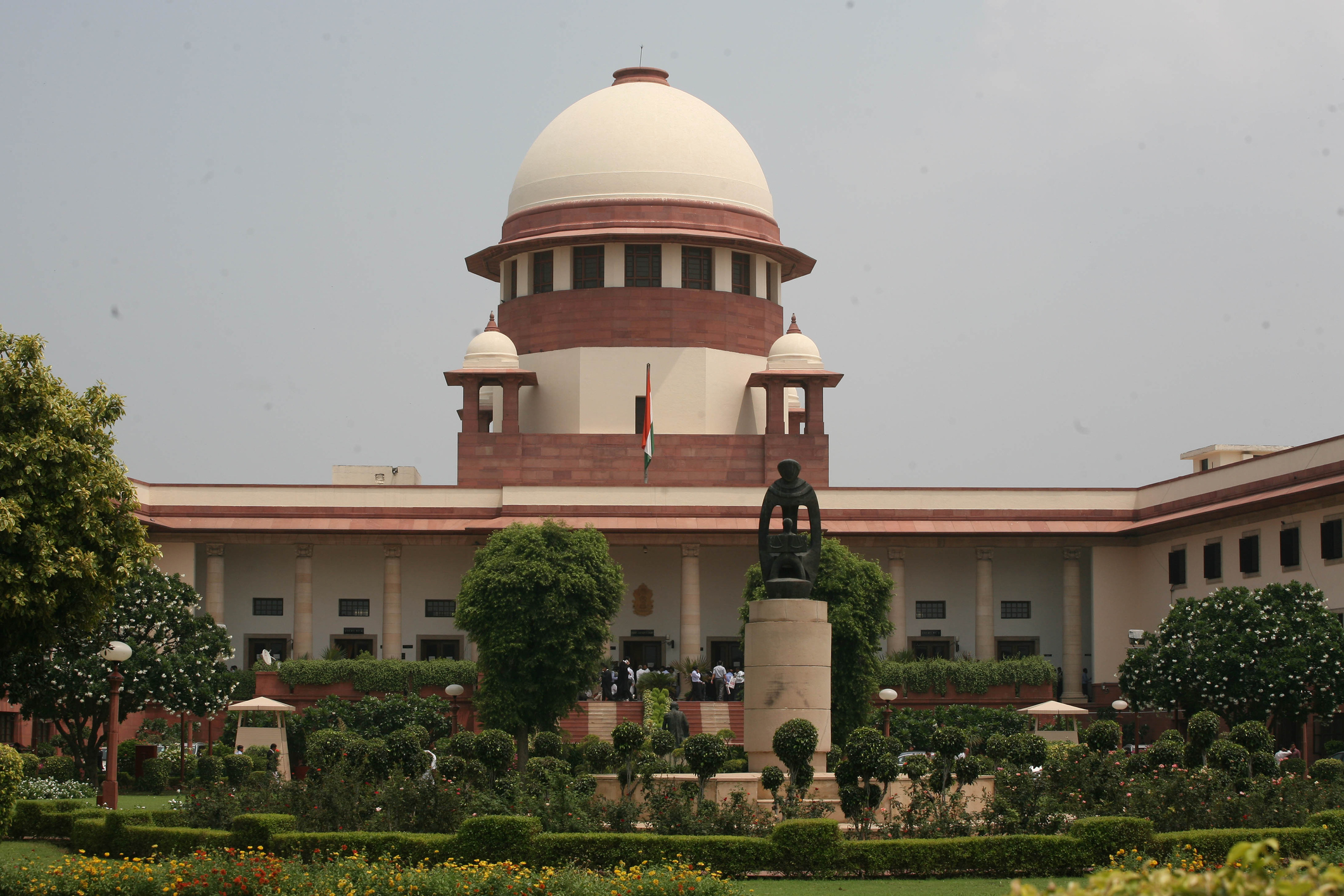A nine-judge constitution bench has dismissed a plea from a lawyers’ forum to allow the executive a say in the appointments and transfers of Supreme Court and high court judges, currently decided entirely by a judges-only collegium.
The verdict, which follows a closed-door hearing on October 17, was uploaded on the apex court website on Wednesday. It comes four years after a five-judge bench quashed Parliament’s efforts to restore to the government such a say, which it had till 1993.
Articles 124 and 217 of the Constitution mandate the President to appoint or transfer Supreme Court and high court judges in “consultation” with the Chief Justice of India, appearing to give the government the primary role.
But in 1993, a nine-judge bench ruled that “consultation” here meant “concurrence”, thus transferring the primacy from the executive to the Chief Justice. The bench evolved the collegium system with the perceived aim of protecting the judiciary’s independence from political influence.
Another nine-judge bench, hearing a presidential reference in 1998, upheld the 1993 judgment.
Now the apex court collegium, made up of the Chief Justice and the next four senior judges, makes recommendations on appointments and transfers that the government can return for a rethink but must rubber-stamp if reaffirmed.
In 2014, Parliament passed legislation replacing the collegium with a National Judicial Appointments Commission (NJAC), which was to include the Chief Justice and the two next senior judges as well as the Union law minister and two “eminent persons”. But a five-judge bench quashed the move as “unconstitutional” in October 2015.
Last year, the National Lawyers’ Campaign for Judicial Reforms and Transparency, founded by Mumbai-based advocate Mathews J. Nedumpura, filed a review petition seeking recall of the 1993 judgment and restoration of the pre-1993 position.
“There is an inordinate delay of 9,071 days in filing the instant petition, for which no satisfactory explanation has been offered by the petitioners,” says the verdict by the bench of Chief Justice Ranjan Gogoi and Justices S.A. Bobde, N.V. Ramana, Arun Mishra, R.F. Nariman, R. Banumathi, U.U. Lalit, A.M. Khanwilkar and Ashok Bhushan.
“Thus, though the present petition is liable to be dismissed on the ground of delay itself, yet we have carefully gone through the review petition and the papers connected therewith. We are satisfied that no case for review of the impugned judgment has been made out. The review petition is accordingly dismissed, both on the ground of delay as well as on merits.”
However, former Supreme Court judge Madan B. Lokur had last month wondered in a newspaper column whether the government was already not calling the shots in judicial appointments.
In an article in The Indian Express newspaper, Justice Lokur had cited several instances where the Centre had interfered with the first choices of the Supreme Court collegium.
“It seems to me that the unconstitutional NJAC is rearing its head and is now a Frankenstein’s monster. The advice of the two eminent persons postulated by the NJAC is no longer required,” he wrote.
“Actually, there is now no need to amend the Constitution to bring back the NJAC — it is already in existence with a vengeance.”
The forum’s petition had also urged an open-court hearing, a point discussed at the October 17 hearing. “Prayer for open court hearing is rejected,” the verdict says.
Review petitions are normally heard inside the closed chambers of judges, without any access provided to lawyers or litigants, although the apex court has on rare occasion heard a review plea in an open court.










